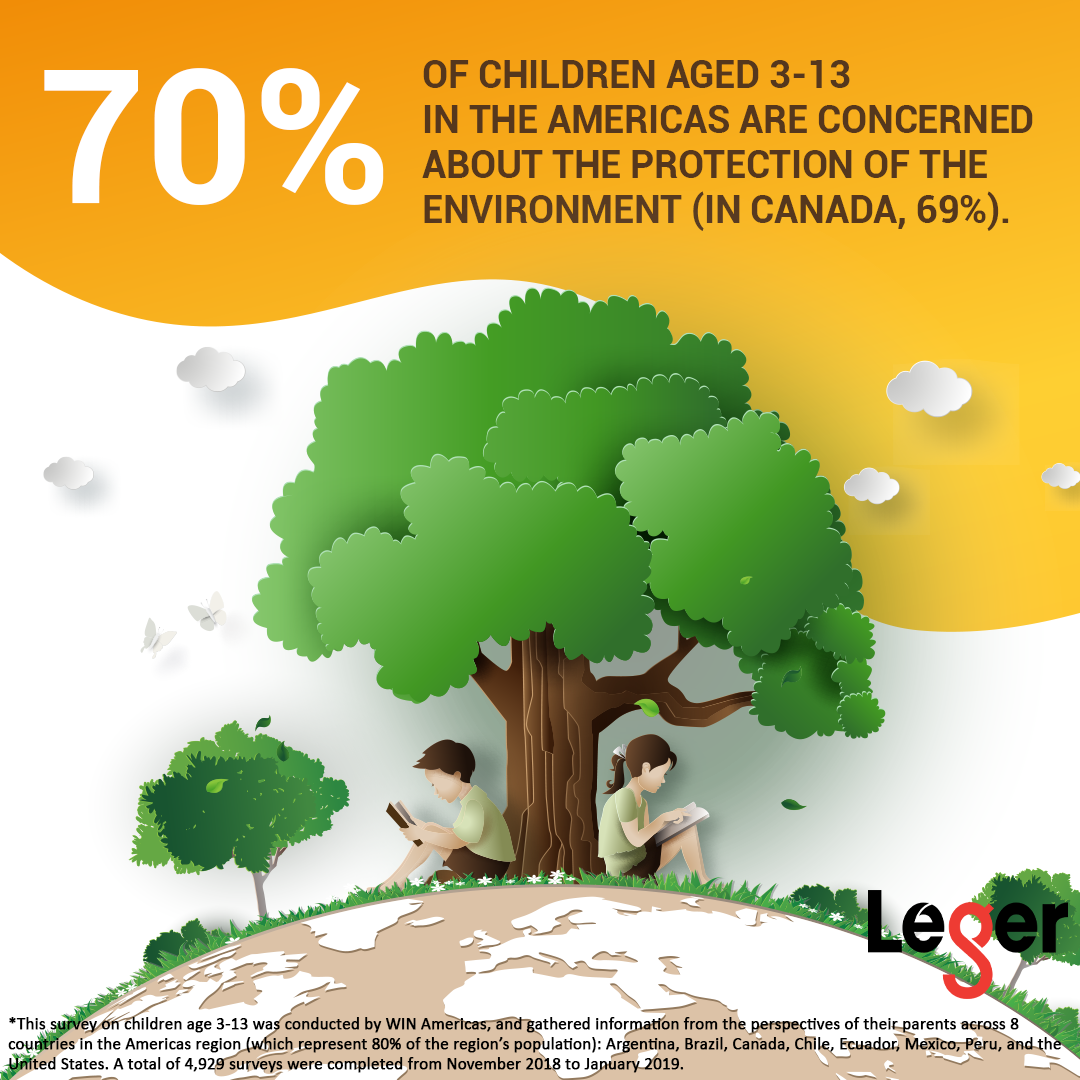Sixteen-year-old Greta Thunberg, the climate activist who began her Skolstrejk för Klimatet (School Strike for the Climate) in August 2018, first became concerned about climate change after learning about it at school, when she was around eight years old. Although her strike began as a solo mission (inspired by the walkout undertaken by students at Marjory Stoneman Douglas High School in Florida to protest gun control laws following the shooting at their school), she has inspired young students around the world to take part in climate strikes to urge government leaders to act on climate change. In March 2019, she was nominated for the Nobel Peace Prize.
Some people may criticize younger generations (including Generation Z and millennials), scoffing that they are lazy, self-absorbed, and disengaged. However, Ms. Thunberg’s story paints a different picture, one in which younger people are increasingly concerned about the environment.
Environmental concerns and sustainability matter to younger generations…
Rather than just being a passing trend, concerns about environmental protection and sustainability are here to stay. Children today are concerned about environmental protection, as are their slightly older counterparts, Generation Z and millennials.
Recently, the Worldwide Independent Network of Market Research (WIN) Americas conducted a study in 8 countries of the Americas (including Canada, USA, Mexico, Ecuador, Peru, Chile, Argentina, and Brazil, which represent 80% of the region’s population) which included questions about the environment. The study gathered information about children aged 3-13 from their parents’ perspectives.
With respect to the environment, one of the key findings of the survey (as reported by parents) is that seventy percent of children aged 3-13 in the Americas are concerned about the protection of the environment (in Canada, 69%).

This finding is further supported by a recent global survey conducted by Deloitte among Generation Z and millennials, which found that climate change / environmental protection / natural disasters is the top concern among both groups when it comes to challenges facing societies worldwide.
The environment is important… but how do environmental concerns and sustainability influence purchasing choices?
In a 2017 study conducted with people across the globe, 81% of respondents indicated that it is extremely or very important for companies to implement programs to improve the environment, with younger generations (Gen Z, millennials, and Gen X) being more supportive (although older groups were not unsupportive).
When it comes to consumer packaged goods, sustainability can influence consumer decisions across all parts of the supply chain, from sourcing raw materials to delivering the final product to consumers. In a recent article titled 5 Ways CPG Brands Can Win with Millennials, Joshua Schall reiterates the importance of sustainability among the millennial generation. He notes,
“No longer can CPG brands hide behind marketing claims on the front of a product’s packaging. To gain the trust of millennials, they have to be clear and honest about what their products contain and how they are manufactured.”
Consumers concerned with sustainability (beyond just millennials) may be evaluating where the raw materials for goods come from (and whether they are produced and utilized in a sustainable way), the environmental impact of transporting materials and goods, and the way goods are packaged, alongside a myriad of other factors.
Although innovations in sustainability have been occurring in companies for quite some time, a couple of recent examples from early July 2019 include:
- Nestlé announcing that one of their snack bars will now feature a 100% recyclable paper wrapper.
- Converse launching the “Converse Renew” series which features sneakers created from recycled plastic bottles (which will later be constructed from up-cycled denim and off-cuts).
In the future, it will be interesting to monitor how consumer demand for sustainability shapes product innovations from sourcing to delivery, especially among younger audiences, among whom sustainability is becoming increasingly important.
Sources:
https://www.theguardian.com/world/2019/mar/11/greta-thunberg-schoolgirl-climate-change-warrior-some-people-can-let-things-go-i-cant
https://www.globenewswire.com/news-release/2019/01/10/1686144/0/en/CGS-Survey-Reveals-Sustainability-Is-Driving-Demand-and-Customer-Loyalty.html
https://www.nielsen.com/ca/en/insights/article/2018/global-consumers-seek-companies-that-care-about-environmental-issues/
https://www2.deloitte.com/global/en/pages/about-deloitte/articles/millennialsurvey.html
https://www.nielsen.com/us/en/insights/report/2018/the-education-of-the-sustainable-mindset/
https://www.forbes.com/sites/jefffromm/2018/11/29/how-the-cpg-industry-can-capitalize-on-consumer-trends/#39da03197c97
https://www.onespace.com/blog/2018/12/5-ways-cpg-brands-can-win-with-millennials-in-2019/
https://www.thegrocer.co.uk/plastic/nestle-claims-world-first-with-paper-flow-wrap-packaging/595033.article
https://www.wired.co.uk/article/recycled-converse-renew-chuck-taylor-all-star



